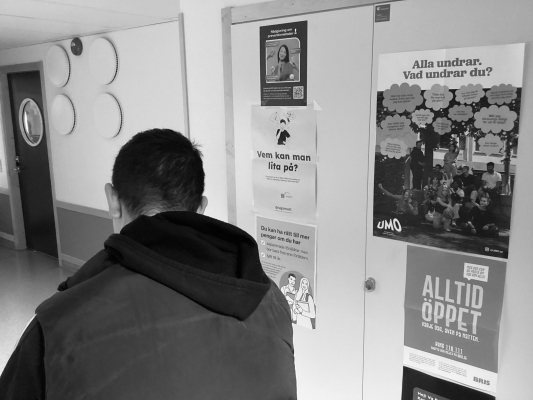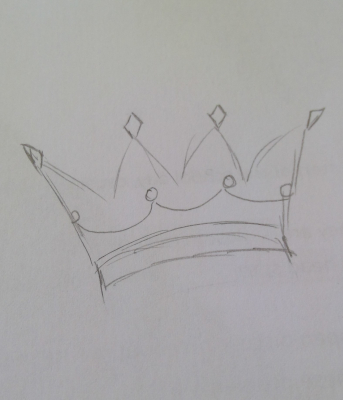Hardworking students rewarded just the same as mediocre students. Fair or not? A perfect GPA is not the same as an average GPA.
The year 2023 came with new changes regarding the distribution and structure of scholarships. On the eighth of September, 2023, the Ministry of Education issued a ministerial order, "Educational Law No. 198/2023, which brought various changes to the system.
The new law introduced the following changes:
Firstly, four new types of scholarships were implemented: Olympic Excellence, Social, Teen-Mom, and Technological scholarships.
The main change in the awarding process concerns the merit-scholarship criteria. It is now granted to the top 30% of students in each class, with the possibility of including additional students who have a GPA above 9.50. However, this change has led to imbalances in the distribution of merit-based scholarships. In some classes, the top 30% of students may have averages significantly below 9.50, raising concerns about fairness and equality.
The Minister of Education at that moment, Mrs. Ligia Deca, intended to begin an educational reform. However, the new laws received rather negative feedback both from the general public and the people working in the domain. Next in this article is featured an interview showing the perspective of someone who works in the academic field: a teacher from Bistrița-Năsăud County, Mr. Iliuță Cezar Adrian from "Lechinta Technological High School," answered some of our questions for a better understanding of how scholarships are distributed and how they can motivate students.
Interviewer: Good afternoon, Mr. Iliuță and thank you for accepting our interview request."
Mr. Iliuță: Thank you for having me. I hope my insight will be helpful.
Interviewer: "I am confident it will be. Now, if you are ready, we will begin the interview. First, I want to ask you what is your overall opinion about the current scholarships system?
Mr. Iliuță: I believe that the current scholarship system aims to be an improved version of the previous one but fails to be so because of its many flaws and inconveniences. The most important change to the current system consists in making a distinction between merit scholarships and the so-called resilience scholarships. This is, in my opinion, one of the positive changes of the system. Still, there are many aspects that do not make sense. For example, we have a high percentage of merit scholarships despite Romanian students obtaining extremely poor results at national examinations. So, the scholarship system is far from being perfect...
Interviewer: Do you reckon that scholarships are equitably distributed?
Mr. Iliuță: Definitely not! There are ”merit-scholarship students” who can hardly read a text, and there are students with several Olympiad participations, good results (but not prizes), and an average of the grades very close to 9.50 and yet no merit or resilience scholarships. This is happening because the same criteria is applied in all schools, to all classes, without taking into consideration the prestige of the school. It is well known amongst academics that good grades are more easily obtained in a low-level school than in a prestigious one. This situation is unfair.
Interviewer: Would you evaluate the transparency of the scholarship selection process?
Mr. Iliuță: Generally, the awarding of scholarships is done with great transparency, but I see one problem with it. It regards the need-based scholarships. I know a lot of parents who simply declared they had smaller incomes or left out parts of their incomes just in order to obtain a scholarship for their children. No state authority checked that out. Poor people with fancy houses and expensive cars break the law for a need-based scholarship. Where is the transparency in this?
Interviewer: What is your opinion on the use of socio-economic criteria in awarding need-based scholarships?
Mr. Iliuță: First of all, I believe that closer research, conducted by the state authorities, is needed when awarding need-based scholarships. Not every family is as poor as it declares; the needs are not the same. Secondly, a need-based scholarship should bring a change, even a small one, in the education of a student.
Interviewer: Have you noticed any changes in students’ behaviour or performance after receiving a scholarship?
Mr. Iliuță: Although scholarships do motivate students to get better grades, very few students show a different behaviour in regard to learning and improving their knowledge after receiving a scholarship. It is true that students improve their performance in order to receive a scholarship, but that is purely because they chase grades that ensure their GPA is eligible for a scholarship. Those who seek pure knowledge are very rare. For them, a scholarship is a bonus, but they learn anyway.
Interviewer: To what extent do you think scholarships help reduce school dropout rates?
Mr. Iliuță: In order to reduce school dropout, a scholarship must be really motivating, which, at the moment, is not the case in Romania. Most frequently, dropout cases happen in underprivileged environments where students usually receive need-based scholarships. In this situation, as the value of the scholarship is irrelevant to the real needs of these students, scholarships most often fail to prevent dropout. First of all, the value of a scholarship should be more financially substantial in order to reduce dropout (more money for real needs). Moreover, a motivating scholarship should bring various opportunities and obligations with it and should be predictable.
 Efforts and dedication lead students toward scholarship opportunities. Image: Aleksandr Merg - shutterstock.com.
Efforts and dedication lead students toward scholarship opportunities. Image: Aleksandr Merg - shutterstock.com.
Do you believe scholarships help prevent school dropout?
Interviewer: Would you propose any changes to the current scholarship regulations? If so, what would they be?
Mr. Iliuță: Scholarships should be more selective and substantial. There should be new criteria for merit-based scholarships. For instance, I believe that thorough monitoring of the academic journey of a student should be conducted during a school year in order for said student to maintain a scholarship. The amount of scholarships should, in my opinion, decrease. Undeserving students who artificially increase their GPA without actually working for their grades should not receive a scholarship.
Interviewer: What suggestions do you have for making the scholarship system more efficient and fair?
Mr. Iliuță: Here are some of my suggestions:
The criteria for all types of scholarships should be more selective and predictable.
There should be two or three checkups a year to see the work of each beneficiary of the scholarship.
Less is better. More money for real performing students. Or for real needs.
Interviewer: Thank you, Mr. Iliuță, for sharing your point of view on the matter as a teacher who works in this system.
Mr. Iliuță: Thank you for having me. I hope this will bring to light some of the deficiencies of the system and will determine a much-needed change.
Just as the answers of Mr. Iliuță emphasized, the idea behind the new scholarship system was good, but in practice, things are far from perfect. According to EduPedu.ro, when the new decision was discussed on thirty-one of August 2023, some organizations, for instance, the "Parents Federation" and "The Ombudsman," voiced their concerns that by adopting the 30% rule for the awarding of scholarships, "it could affect equity and promote mediocrity." As Mr. Iliuță shared, there are still many students who deserve support but fail to get it, while others take advantage of the system. If we really want scholarships to help and motivate students, the system needs to be more fair, more honest, and closer to the real needs of those it is meant to support. As the well-known proverb says, ''Hard work pays off.'' It's not fair that some receive the "reward" even though their work is not honest, while others struggle a lot but still receive nothing. This is one of the major flaws in the current awarding system. Will students ever get treated fairly? Will the hard-working students ever be truly acknowledged and equally distinguished?
*Interview questions created with the use of AI.




































